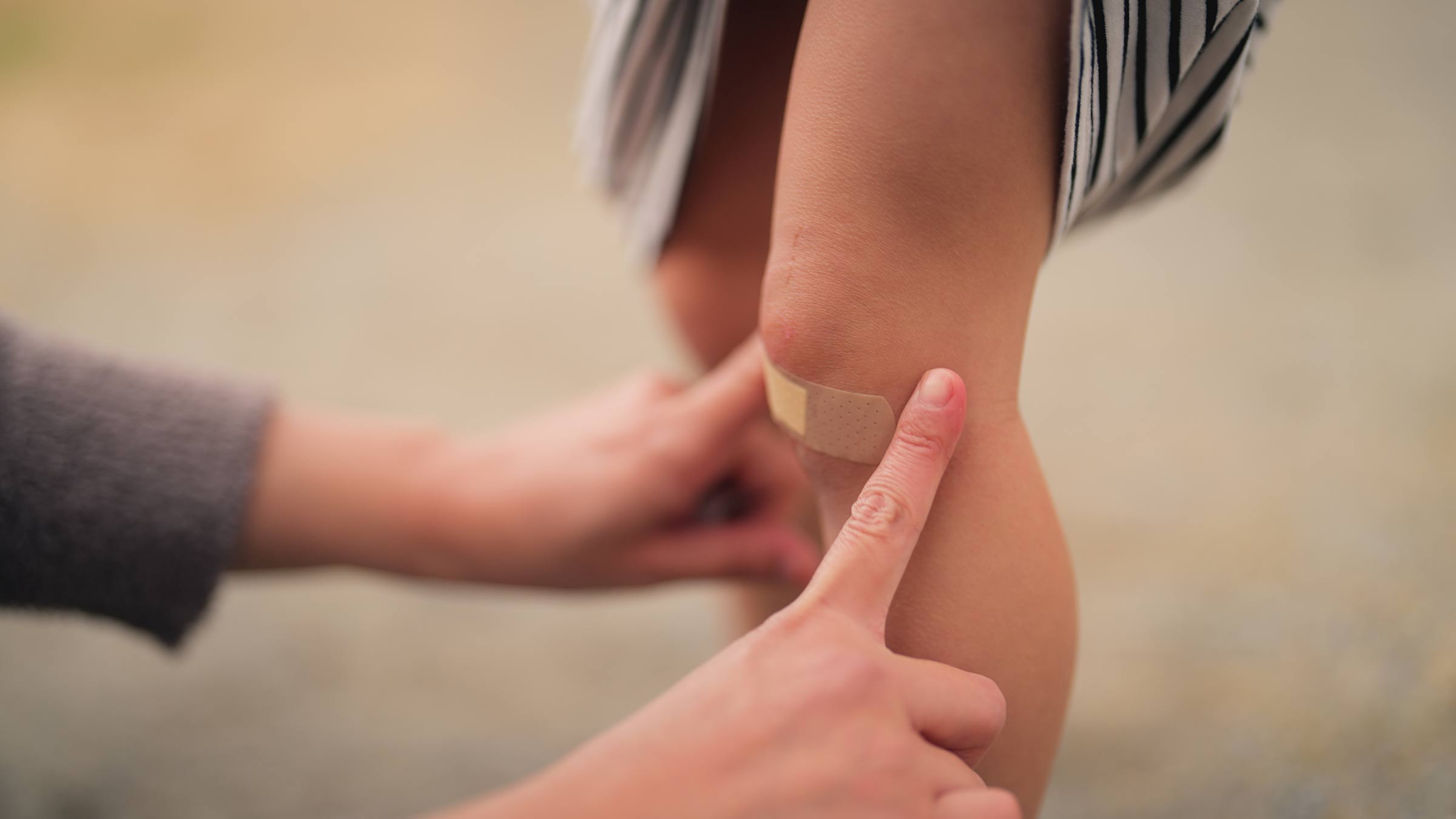
We’d all like to avoid them, but minor wounds are a part of life. Being prepared, with a combination of knowledge and supplies, is the best way to ensure they stay minor.
Read below for some insight into the best ways to handle a wound quickly and easily if you happen to have one, whether you’re at home or on the go.
Caring for minor wounds at home
The good news is, when you’re at home, you don’t need a lot of expensive supplies to tend to minor injuries.
Step 1: Clean the wound
The first step is to clean the wound. And using soap and water is fine for just about any wound.
However, you do want to be a bit selective about the type of soap you use. Choose a simple, plain soap, maybe liquid soap instead of bar soap, even dish soap would do the trick. Don't opt for anything with a lot of additives. And you don’t need medical soap.
As for water, tap water is fine. You don’t need sterilized water or saline.
Remove any debris. Often, the mechanical effect of running water from the tap or the sprayer attachment on a kitchen sink will be enough to dislodge any debris. But you may have to scrub the wound a bit with a washcloth or even a clean toothbrush.
Step 2: Cover the wound
Use gauze and medical tape to cover the wound. If you don’t have gauze, use something absorbent that will soak up some of the blood and other fluids without getting stuck in the wound, possibly a clean towel or washcloth. Stay away from toilet paper and tissue, because they’ll fall apart when they get wet and may leave material in the wound.
You’ll no longer need to keep the wound covered once the light-yellow inflammatory fluid has finished draining and a scab forms. But gently wash it with soap and water every now and then, perhaps whenever you shower or bathe.
As for antibiotic ointments, like Neosporin and Bacitracin, most people don't need them. If a wound starts to show signs of infection, then applying the ointment might make sense. But if you clean a wound well and keep it covered, your body's immune system will protect it.
Signs of infection include fever, worsening redness around the wound, significantly increased pain and thicker yellow-green discharge. If these signs develop, it’s a good idea to contact a health care professional.
Caring for minor wounds away from home
If you’re away from home, you may not be near soap and water or bandages. But there are some steps you can take to protect a wound until you have basic supplies.
Step 1: Remove any dirt from the wound
Find something clean to wipe any dirt out of the wound, like an extra article of clothing. If you don’t have anything, do your best to brush out any loose dirt and debris.
If you have water, it’s a good idea to rinse out the wound with plain water. Don’t use any carbonated, sugary beverages. A Gatorade or lightly sweetened drink could work in a pinch.
If you’re by a known freshwater source, from a natural stream, for example, you might use that to rinse a wound. But never use stagnant water, or any natural water if you’re unsure of the source.
An even better idea is to carry antiseptic wipes or a waterless wound cleanser so you have them on hand when water isn’t available.
Step 2: Protect the wound as best you can
You may not have anything to cover the wound, so do your best to avoid exposing it to significant amounts of dirt and debris.
Insider tip: If you happen to have honey, go ahead and put a bit of honey on the wound. Honey is a natural antibiotic. It might get a bit messy, but will provide some healing properties.
If you have a healthy immune system, your body is extremely capable of healing minor wounds. So, don’t be overly concerned, make sure you clean and cover the wound properly when you’re able, and watch it for signs of infection, as mentioned above.
If signs of infection develop, don't delay getting the wound looked at by a health care provider.
High-risk wounds
You may be at higher risk of infection if your wound was:
- A bite — human or animal
- A puncture, especially one through material (like a shoe)
- Especially dirty
What you shouldn’t do with wounds
- Don’t put saliva on a wound. The idea that saliva, from a human or an animal, can help heal a wound, is a myth.
- Don’t rub dirt on a wound — another myth.
- Don’t use rubbing alcohol or sanitizer on a wound.
- Don’t use hydrogen peroxide on a wound.
- Don’t allow a wound to come into contact with contaminated water.
A word on burns
Like wounds, the initial care for a burn is to clean it, but do so gently. If a blister has formed, leave that blister intact if you can — body skin is the best bandage you can have.
Place something wet on the burn to keep it cool, then keep the burned covered.
For anything except a minor burn, it’s a good idea to visit a health care professional. For severe burns, head to the emergency department.






